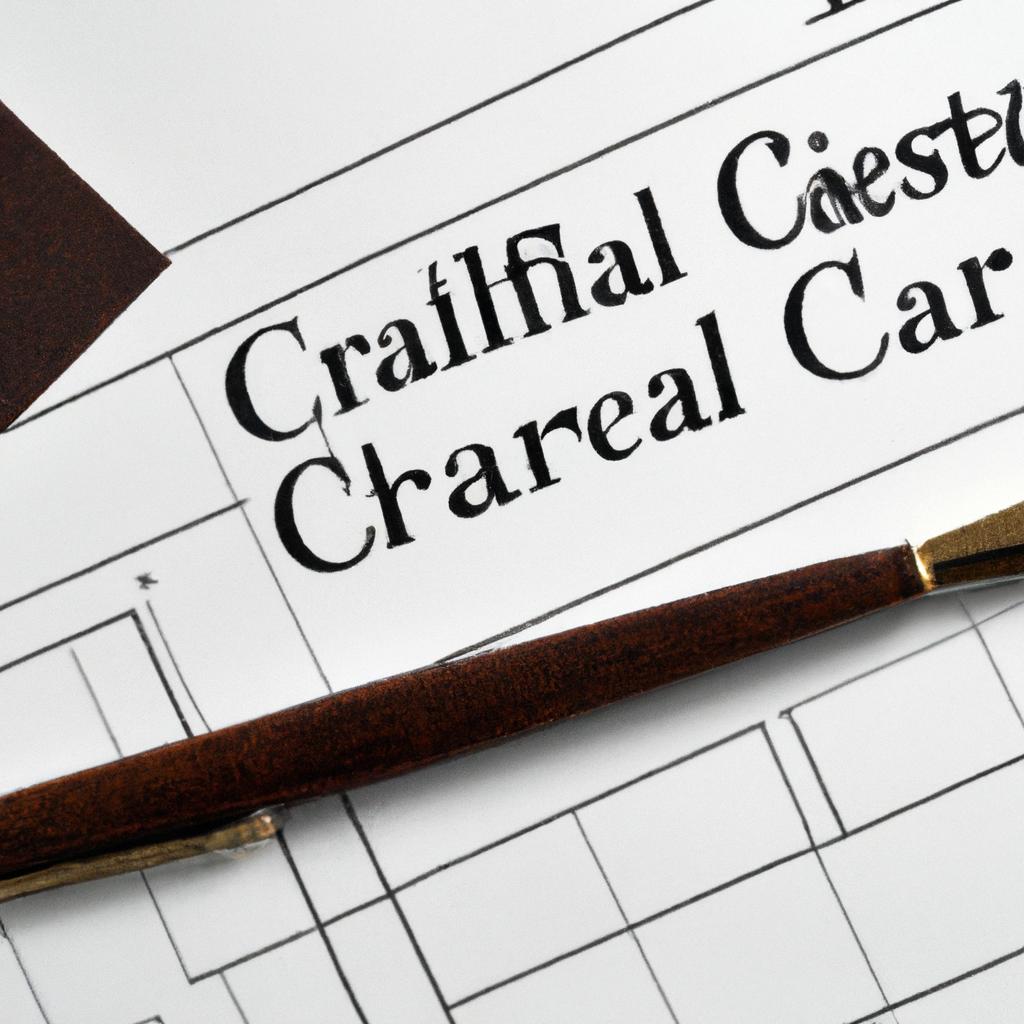When considering the intricacies of estate planning, one must navigate a complex labyrinth of legal statutes and regulations in order to ensure the seamless transfer of assets to loved ones. At Morgan Legal Group in New York City, our team of seasoned legal professionals specializes in estate formation, offering comprehensive services in probate, elder law, Wills, and trusts. Join us as we delve into the fundamental principles of estate planning and delve into the nuances of creating a solid foundation for the future.
Understanding the Importance of Proper Estate Planning
Proper estate planning is essential to ensure that your assets are distributed according to your wishes after your passing. Without a carefully crafted estate plan, your estate may be subject to probate, which can be a lengthy and costly process for your loved ones. By working with an experienced estate planning attorney, you can create a personalized plan that accounts for your specific wishes and circumstances.
One key aspect of estate planning is creating a Will, which outlines how your assets will be distributed upon your death. In addition to a Will, setting up trusts can help protect your assets and minimize estate taxes. Estate planning also involves designating beneficiaries for your retirement accounts and life insurance policies, as well as appointing guardians for any minor children. By taking the time to properly plan your estate, you can provide peace of mind for both yourself and your loved ones.

Crafting a Comprehensive Estate Plan: Key Considerations and Strategies
Crafting a comprehensive estate plan requires careful consideration of various factors to ensure your assets are protected and distributed according to your wishes. One key consideration is identifying all of your assets, including real estate, investments, retirement accounts, and personal belongings. This information will help determine the best strategies for transferring these assets to your loved ones after you pass away.
Another important aspect of estate planning is selecting the right beneficiaries for your assets. Whether you choose to leave your assets to family members, friends, or charitable organizations, it is essential to clearly outline your wishes in your estate plan. Additionally, establishing durable powers of attorney and healthcare directives can ensure that your financial and medical decisions are handled according to your preferences in the event of incapacity. By working with experienced estate planning attorneys like Morgan Legal Group, you can develop a comprehensive plan that provides peace of mind for you and your loved ones.
Maximizing the Benefits of Trusts in Estate Formation
One of the key strategies in is to carefully consider the type of trust that best suits your needs. There are various types of trusts available, each with its own advantages and considerations. By consulting with an experienced estate planning attorney, you can determine whether a revocable trust, irrevocable trust, special needs trust, or another type of trust is most appropriate for your unique situation.
Another important factor in is selecting the right trustee. The trustee plays a crucial role in managing the trust assets and carrying out your wishes. It is essential to choose someone who is trustworthy, competent, and capable of fulfilling their fiduciary duties. By appointing a reliable trustee, you can help ensure that your estate is administered effectively and efficiently for the benefit of your intended beneficiaries.

Navigating Probate Process: Essential Steps and Pitfalls to Avoid
In the estate formation process, it is crucial to understand the essential steps and potential pitfalls to avoid when navigating the probate process. As experienced attorneys at Morgan Legal Group, we have seen firsthand the complexities that can arise during probate and strive to guide our clients through this challenging process with care and expertise.
- Ensure all necessary documents are in order, including the decedent’s Will, financial records, and any relevant legal paperwork.
- Communicate effectively with all parties involved, such as beneficiaries, creditors, and the court, to expedite the probate process and prevent any delays.
It is also important to be aware of potential pitfalls that may arise during probate, such as disputes among beneficiaries, creditor claims, and tax implications. By working closely with our team at Morgan Legal Group, you can trust that we will help you navigate these challenges and protect your loved one’s estate with diligence and care.
Q&A
Q: What is estate formation?
A: Estate formation refers to the legal process of creating and structuring one’s assets and possessions to be passed on to loved ones after death.
Q: Why is estate formation important?
A: Estate formation is important to ensure that your assets are distributed according to your wishes and to minimize any potential disputes among heirs.
Q: When should someone begin the process of estate formation?
A: It is recommended to start the process of estate formation as soon as possible, regardless of age or wealth, to ensure that your wishes are carried out in the event of your passing.
Q: What are some common tools used in estate formation?
A: Some common tools used in estate formation include wills, trusts, powers of attorney, and healthcare directives.
Q: How can someone begin the process of estate formation?
A: To begin the process of estate formation, it is recommended to consult with a qualified estate planning attorney who can help tailor a plan to your specific needs and goals.
Q: What are some potential benefits of estate formation?
A: Some potential benefits of estate formation include minimizing estate taxes, avoiding probate, and providing for the financial security of loved ones.
Q: Are there any potential downsides to estate formation?
A: Some potential downsides to estate formation may include the cost of professional advice, the time investment required to create and maintain a plan, and the potential for family disputes over inheritance.
In Retrospect
As we reach the end of our exploration into estate formation, we have uncovered the intricate process of creating a legacy that transcends generations. From setting goals and creating a plan, to navigating the legal and financial complexities, estate formation requires foresight, patience, and meticulous attention to detail. Whether you are just beginning your estate planning journey or looking to make adjustments to an existing plan, remember that the key to a successful estate formation lies in thoughtful consideration and proactive decision-making. By taking the time to craft a comprehensive strategy, you can ensure that your loved ones are provided for and your legacy endures for years to come. Thank you for joining us on this enlightening journey through the world of estate formation.
 Estate Formation: Understanding the Basics and Benefits
Estate Formation: Understanding the Basics and Benefits
Estate formation is a crucial aspect of financial planning that often gets overlooked or neglected. Many people assume that estate planning is only necessary for wealthy individuals, but the truth is that everyone can benefit from having a well-structured estate plan in place. In this article, we will delve into the basics of estate formation, its importance, and the benefits it offers.
What is Estate Formation?
Estate formation refers to the process of organizing and managing one’s assets, properties, and other valuable possessions during and after their lifetime. It is a comprehensive plan that ensures the smooth distribution of assets to the intended beneficiaries after the person’s death. Estate planning also involves outlining the management of one’s finances, healthcare decisions, and guardianship of minors if any.
Why is Estate Formation Important?
Estate formation is essential for several reasons. Firstly, it helps in avoiding conflicts and disputes over assets and properties after a person’s death. Second, it is a way to provide for loved ones and distribute assets according to your wishes. Third, it allows you to have control over your healthcare decisions and designate someone you trust to make those decisions on your behalf. Overall, estate formation provides peace of mind knowing that your assets will be handled and distributed according to your wishes.
Benefits of Estate Formation
1. Avoid Probate Court
One of the most significant benefits of estate formation is the avoidance of probate court. Probate court is a costly and time-consuming legal process that validates a will and distributes assets to the beneficiaries. By having a comprehensive estate plan in place, you can minimize the chances of going through probate court, which can save your loved ones from a lot of hassle and expenses.
2. Protect Your Assets
Estate formation goes beyond simply transferring assets to beneficiaries. It also involves protecting your assets from potential creditors, lawsuits, or other unforeseen circumstances. By setting up trust structures, you can ensure that your assets are safeguarded and passed down to your loved ones, according to your wishes.
3. Minimize Estate Taxes
Estate taxes can significantly reduce the value of assets and properties inherited by your loved ones. However, with proper estate planning, you can minimize these taxes and maximize the value of your assets for your beneficiaries. Proper estate formation can help you take advantage of tax exemptions and deductions, ensuring that your loved ones receive the maximum benefit from your estate.
4. Protect Your Minor Children
If you have young children, estate formation is crucial for designating a guardian of your choice. This ensures that your children will be taken care of by someone you trust and prevents potential conflicts among family members.
5. Plan for Incapacity
Estate formation also involves determining who will handle your finances and make healthcare decisions on your behalf if you become incapacitated due to illness or injury. This allows you to maintain control over your life and healthcare, even when you cannot make decisions for yourself.
Practical Tips for Estate Formation
1. Start Early
Estate formation is not a one-time process, so it is crucial to start early and review and revise your plan regularly. Life circumstances and laws may change, and it is essential to update your estate plan accordingly.
2. Seek Professional Assistance
While there are DIY estate planning options available, it is always recommended to seek professional assistance from an experienced estate planning attorney. They can provide valuable guidance and ensure that your plan is legally binding and effective.
3. Communicate with Your Loved Ones
Once you have your estate plan in place, it is essential to communicate your wishes and plans with your loved ones. This can help avoid conflicts and ensure that everyone understands your intentions.
Real-Life Case Studies
1. Unintended Consequences of Not Having an Estate Plan
The sudden death of music superstar Prince is an example of why estate planning is critical. Despite his significant wealth, Prince did not have an estate plan in place, leading to a lengthy and costly legal battle over his assets and heirs.
2. Estate Planning for Blended Families
In case of blended families, estate formation is crucial to ensure that both the children from the current and previous relationships are taken care of. Without a proper plan, assets may unintentionally be inherited by the wrong people, causing conflicts and unnecessary financial burden.
Conclusion
Estate formation is a crucial aspect of financial planning and should not be overlooked. It involves more than just distributing assets; it ensures that your loved ones are taken care of, your assets are protected, and your wishes are respected. With proper estate planning, you can have peace of mind and leave a lasting legacy for your loved ones. Take the first step towards estate formation today and consult with a professional estate planning attorney to create a plan that suits your specific needs and goals.

